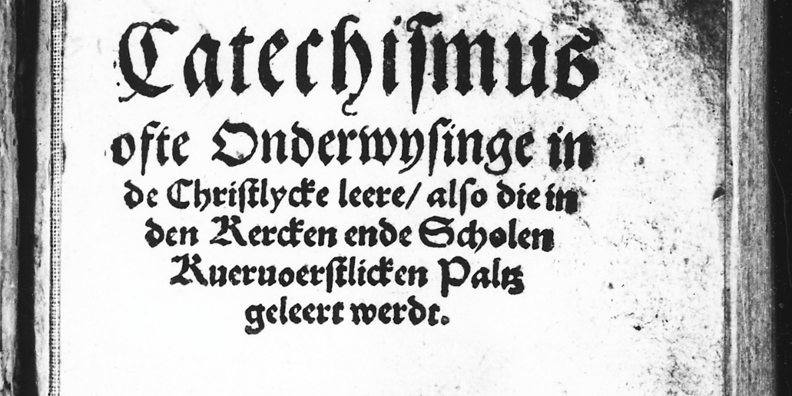28 November 2024
Researchers from the Protestant Theological University (PThU) in the Netherlands have rediscovered a long-lost copy of one of the first 1563 Dutch editions of the Heidelberg Catechism. Dr. Klaas-Willem de Jong LLM and Wouter Kroese MSC MA, the scholars behind the find, have made the microfilm digitally accessible through the university’s library.

The discovery provides crucial insights into the early development of the Heidelberg Catechism. The Bible references noted in smaller print in the margins of the 1563 edition of the Heidelberg Catechism indicate how the 16th-century theologians sought to support the teachings of the Catechism with biblical texts. The seven prayers included at the back of the Catechism are also highly significant. These prayers—three for Sunday worship and four for household use such as before meals, at bedtime, and upon waking—were previously known only from literature, but the texts themselves were not available. In modified forms these prayers are still printed in contemporary psalm books and Bibles. The rediscovered 1563 edition allows modern believers to connect with similar prayers of their ancestors.
The Heidelberg Catechism was first published in 1563 in German, with multiple editions circulating quickly. Petrus Dathenus (1531/1532-1588), a Dutch pastor working in Heidelberg and its surroundings, published a Dutch translation that same year. Like the German versions, Dathenus’ translation included the seven prayers. Although his translation was at the time not as popular as others, it influenced later Dutch versions. In 1566, Dathenus released a revised translation of the Catechism, which became the standard for the Netherlands Reformed Church.
The Dutch translation from 1563 was first rediscovered in the 19th century by the Utrecht theologian J.I. Doedes (1817-1897), who made it more widely known through a reprint. However, he omitted the preface by Palatine Elector Frederick III, the Bible references and the prayers. After Doedes’ death, the unique copy was sold and shipped to New York, where it was lost. Fortunately, photo prints had been made of the edition earlier, and a microfilm was later obtained by J.F.G. Goeters, a German church historian. This microfilm, housed at the archives of the Evangelische Kirche im Rheinland in Düsseldorf, remained unused until De Jong and Kroese’s recent research uncovered it.
For those interested in the findings, De Jong and Kroese will publish an article about their discovery in Church History and Religious Culture (CHRC) later this year. Additionally, their research on the seven prayers has been incorporated into a forthcoming book titled De Nederlandse gereformeerde Liturgie 1566-1639. De teksten en hun dynamiek, which will be published by Uitgeverij Verloren (Hilversum) and released in early December. This book will be officially presented in Utrecht on December 7, 2024.
Thec atechism is online accessible through the university’s library.